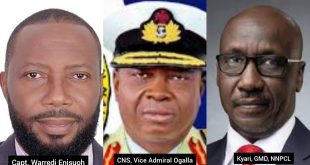By Okuneye Moyosola
As air traffic grows, airports have to become more adaptive, entrepreneurial and proactive to changing aviation dynamics. With most airports now poised as ‘multimodal’ transportation hubs for people, information and trade, the effort is to make systems and processes digitally aware, interconnected, infused with intelligence and simple to access by all stakeholders.
Airports also have numerous challenges such as predicting capacity demand, providing enhanced passenger travel experience, improving operational process efficiency, improving staff productivity, and ensuring safety and security. This underlying problem calls for the need to embrace technology in order to create a unified, integrated, ready-to-use digital platform to assist airports in becoming intelligent and informed.
These technologies also help airport operators improve passenger experience, operational efficiencies and compliance, forming the base for future growth.
Airports around the world are now heavily investing smart technologies to enhance efficiency, productivity, and security. From sensors deployed throughout the airport to monitor and manage temperature and lighting, to smart check-in kiosks and unmanned bag drops, cameras with facial recognition and predictive Artificial Intelligence to heighten security, and unified communications to enable instant communication across the entire airport, technology is being used in ever-more complex and integral ways across the entire airport.

Sadly, because of the capital-intensive nature of acquiring these technologies, most airport in Nigeria and in Africa at large do not measure up to international standards. Adequate finance has also been one of the major challenges facing Africa’s aviation sector.
This formed part of deliberations by airport stakeholders from across Africa at the 28th ACI Annual General Assembly, Conference & Exhibition held at Kempinski Hotel, Accra, Ghana from October 12 to 18, 2019.
Romesh Bhoyroo, Director, Strategy & Business Development, ACI Africa in his presentation said Airports Council International (ACI) had identified financing of airport technology infrastructure as one of the challenges ahead in the course of implementing the APEX Safety Programme.
“There is a very high cost in terms of finance to be invested in what is changing but are we ready for this cost journey?” asked Justine Sushi from Tanzania during discussions.
“There are many airports in Africa that are struggling on digital transformation but when technology is transforming, it always transforms in an expensive way. There is a need to seek a way of financing technological advancement so that both big and small airports can keep moving,” Justine added.
Speaking on the issue, aviation expert and Chief Executive Officer, Centurion Security and Safety Consults, Group Captain John Ojikutu (Rtd) in a chat with MMS Plus disclosed that airports in Nigeria are not generating a lot of funds for technological advancement as a result of the refusal of airlines to pay the required charges.
“How much revenue is been generated at the airport? What is the value of the services that an airport like MMIA is providing? Are they generating enough? If a service for 5 Naira and you charge the person for 3 Naira, this shows that you have a shortage of 2 Naira. It is either the person you are providing the services for is shortchanging you or those of you that are collecting the revenue are shortchanging the owner. What is the revenue of the services that FAAN is providing at the airport? We are talking of passenger services, landing, parking services as well as many others that they are providing. How much is the revenue that they are getting from the airlines? How many airlines are paying and how many airlines are not paying? If you are supposed to be getting a revenue of 500 billion and you are getting revenue of 50 billion, where would you get the balance?” he queried.
According to him, funds for technological infrastructure could only be raised if the airports are concessioned.
“This is why I have always said that the airport should be concesissioned because there are some people particularly the private airlines who believe that anything that is for the government is free. The Chairman of Bi-Courtney, Wale Babalakin is not complaining about MMIA 2 and he is paying FAAN. If Babalakin is not complaining and he is operating a terminal like FAAN is operating terminals, then something is wrong. How is Babalakin collecting his money from the airlines? How is FAAN collecting it’s own money from the airlines?”
“We need money to get these technologies at our airports. The people that are complaining are the government and we have told them to concession it if they aren’t generating enough revenue. If you give it to a private person, he will get his money because there are people in Nigeria who believe that government services are free. That is why you are hearing some of the airlines asking government to convert them to government airlines so that when they become a government airline like the Nigerian Airways, they wouldn’t be paying for all these services. This is where the problem is. For us to talk about any technology, there is need for us to concession our airports. Since they don’t have money for technology now, my advice for them is to concession the airport”.
Ojikutu also stressed that the non- aeronautical revenue sources at the airport should be maximized in order to generate more revenue.
“The non aeronautical revenue sources which includes the terminal building, car parks, toll gate, cargo terminal, hangers are not owned by government. The ones that is owned by government is the runway, taxiway, aircraft parking area, control tower, air navigational services are aeronautical revenue sources. That is government responsibility under the International Civil Avaition Organization (ICAO)”.
“The government should face the one that they have the obligations to under the international regulation. They should leave every other thing that has to do with car park, passenger terminal building and others that are non aeronautical to private operators. When you talk about technology on that side, the people that are operating it will look for the money for it. Concession all these terminal buildings that are not aeronautical to people, the only thing that the government would do is to ensure that any passenger that is coming out from that place should be properly screened before they board the aircraft. Government has no business with the terminal buildings” Ojikutu stressed.
Similarly, transport expert, Dr. Obiora Madu noted that the place of technology is critical to the growth of the aviation industry and expressed fears over the situation.
Madu noted that airports are not generating enough revenue despite the exorbitant charges collected from airlines.
“Technology is also infrastructure because infrastructure is not just about the buildings at the airport. In the aviation Industry, technology is a very sensitive infrastructure. You can manage the buildings buy you can’t manage technology. If we turn around in this modern age to say that we don’t have enough money for technology, it means that the aviation Industry is in danger”.
“The next place people would be looking at to generate money would be to increase charges at the airport. There are so many charges at the airport already. I was at a program recently and they were talking about the cost of flying in and out of our airports in Nigeria. The person who was speaking said that if a Boeing 777 aircraft comes in, loads and gets out if Nigeria, the aircraft will be an amount of about 37,000 US dollars. However, if the aircraft does the same thing in Ghana, it will pay less than 5,000 dollars. This shows that we are not competitive”.
He also noted that the aviation industry needs to look for other avenues to generate income to keep up with global standards.
“People in this country particularly those who are at the top need to become creative. Under certain circumstances, you need to start looking for non conventional strategies and methods. What you hear most time is to increase tax; VAT and we are not looking at the economic implications because businesses are going to die if we continue like this. If you were taking a flight from Nigeria to United Kingdom, the rates are higher than from Ghana to UK. The reasons are obvious. Government needs to urgently budget for airport infrastructure particularly as it relates to technology. We can get the money for this technology from non-conventional strategies and methods. The aviation industry is a very sensitive industry” he opined.
Meanwhile, the Chief Executive Officer of Belujane Konsult and an aviation consultant, Mr. Chris Aligbe while speaking at the 2019 Akwaaba Travel event emphasized the need for concessioning adding that it would help improve the technological and infrastructural standards of airports.
“We do not have an African standard airport in our country. If we go ahead and we don’t create it, we will never make headway. That is why the issue of concessioning our airport is important. If we don’t build new airport, we may not have world standard airport, there is no way we can make headway even if we set up the best airline, the facilities would not be there. That is why a national airline and concessioned airport would be mandatory for our country” he said.
The air traffic across Africa is estimated to triple to 303 million in the next 20 years. This comes at a time when African countries are beset by the need to prepare for the increased demand at local, national and regional levels. This preparation involves ensuring adequate infrastructure and technologies are in place to meet this growing demand. Is Nigeria’s aviation industry prepared for this development? What efforts are been made to generate more money for the sector? These are the questions that need to be answered quickly if we want a standard aviation industry.
At the same time, International Air Transport Association (IATA) has warned of an impending global airport capacity crisis with 7.8 billion passengers expected by 2036. This also makes planning for the future of aviation infrastructure and technology more important.
 MMS PLUS NG – Maritime, Aviation, Business, Oil and Gas News Online Newspaper with coverage in Maritime, Oil and Gas, Aviation, Power and Energy as well as Financial News
MMS PLUS NG – Maritime, Aviation, Business, Oil and Gas News Online Newspaper with coverage in Maritime, Oil and Gas, Aviation, Power and Energy as well as Financial News










